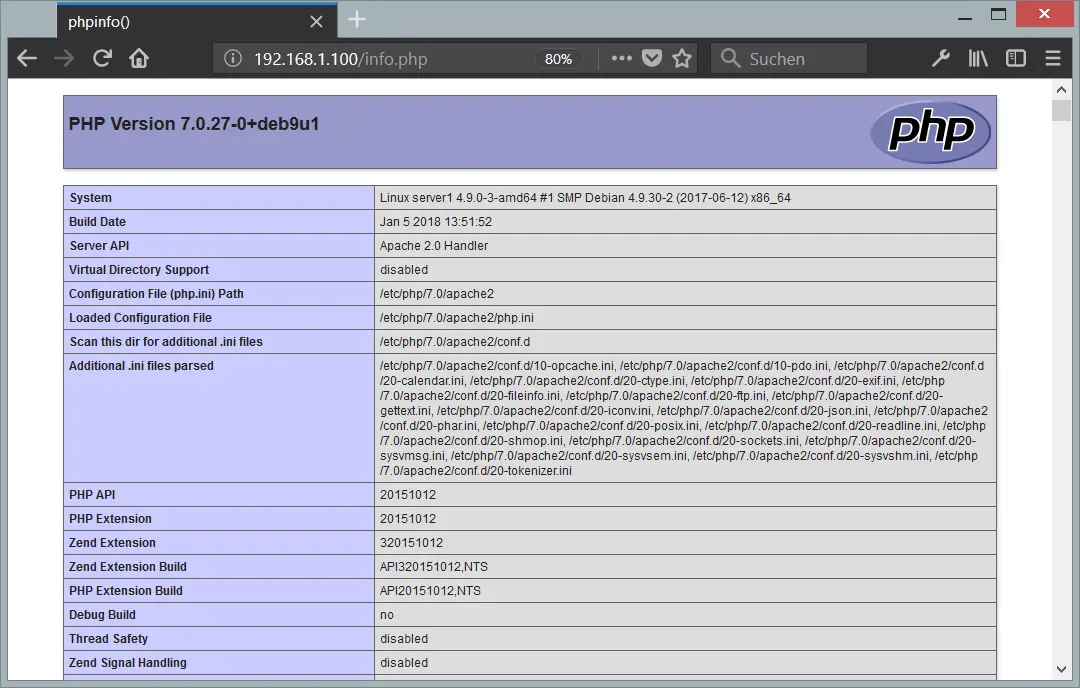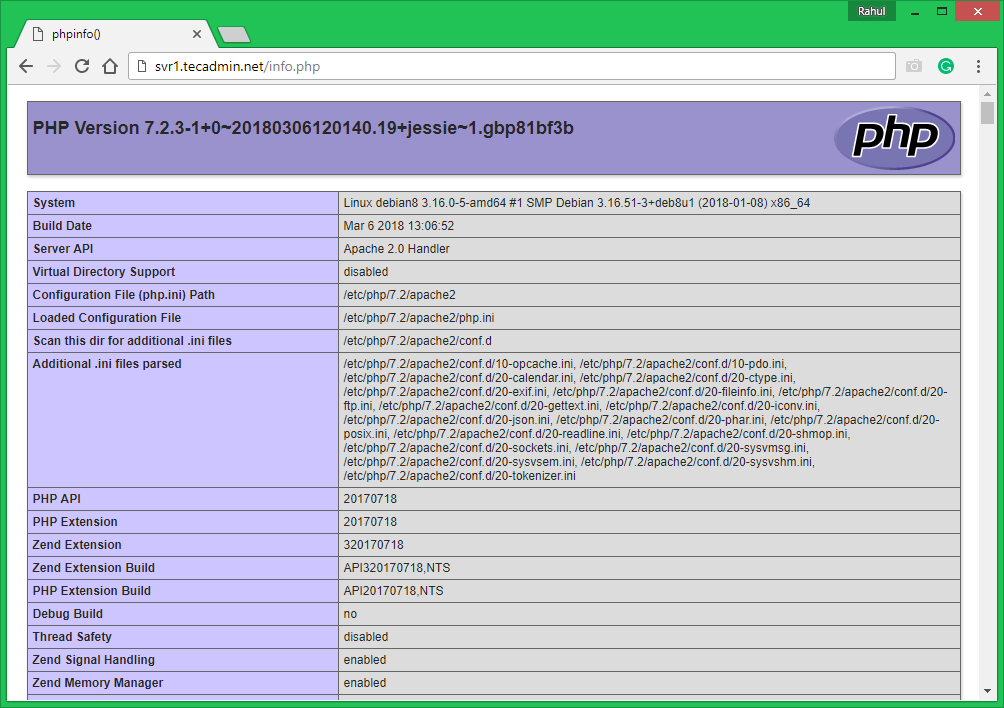Then, you type update command to update new packages for PHP. Apt-get update Install PHP 7 in Debian 8. Now, you can install PHP 7 using the command below. Apt-get install php7.0 php7.0-fpm php7.0-gd php7.0-mysql -y. The above command will install almost all the necessary php packages. The PHP version is 7.0.28-1dotdeb+8.1.


Introduction
A LAMP server is a web server combination of Apache, MySQL, and PHP on Linux server. It is widely used for hosting PHP and MySQL based websites on the world wide web. This tutorial is created to help administrators to configure LAMP-based web hosting environment on Debian Jessie.
This tutorial helps you to step by step setup of LAMP Stack on a Debian 8 Jessie system.
- How to install/update PHP 8.0 (Debian/Ubuntu) 1. List existing PHP packages. If you are updating from an existing PHP version to 8.0, it's important to get a list of. Add ondrej/php PPA. Steps above will add the PPA as a source of packages, that contains all PHP packages and their.
- Whenever I install php5 using apt-get, it installs the latest available version of PHP 5.6. How do I install PHP 5.4.44 (or whatever the latest version of PHP 5.4 actuall is)?
Step 1 – Prerequisites
Login to your Debian system with a sudo privileged user or root user using ssh command. Windows users can either use putty or other alternatives.
After login to your Debian system upgrade the current packages to the latest available version.
Also, install packages on your system required for commands used in this tutorial.
Step 2 – Install Apache2
Apache2 packages are available under default apt repositories. You can install Apache2 on a Debian 8 by running below command.
Step 3 – Install MySQL
MySQL server packages are also available in Debian 9 base repository. Run below command to install MySQL server for your LAMP setup.
Default repositories don’t contain latest packages. Use this tutorial to install latest MySQL server on Debian 8.
The installation process will prompt for the root user password.
Step 4 – Install PHP
The default Debian repository contained older PHP packages. To install the latest PHP versions enable the below PPA on your System, This provides the latest PHP packages for installation on Debian Linux.
Now install PHP packages on your system. Also install some other required modules to work PHP with MySQL and Apache2.
Step 5 – Verify Setup
The LAMP installation on Debian 8 has been successfully completed. You can test your setup by creating phpinfo file on your server. Edit the below file in your favorite text editor.
Add the below content.
2 | phpinfo(); |
Now access the info.php file in a web browser using your system IP address.
Debian Php 7.4
PHP 7.4 has been published on 28 Nov 2019.
To update the active version of PHP to this one in a Debian system, you can follow the next steps.
This tutorial works on:
Install Latest Php Debian
- Debian 10 (buster).
- Debian 9 (stretch).
- Debian 8 (jessie).

You can check the PHP packages that you have installed in your server with a previous PHP version to install the same packages with PHP 7.4. To do this, you have to use the command:

To search the packages that you can install, you have to use the command:
Installing Php On Debian 8
To install the PHP 7.4 core you have to use the command:

Then you have to install the extensions. All the extensions have the prefix «php7.4». To do this, you have to use the command:
The default CLI version becomes PHP 7.4.
If you need to change the default version for other, you can use the command:
Installer Php Debian 8 Iso
If you check the default PHP version, now you can see that has changed to PHP 7.3: